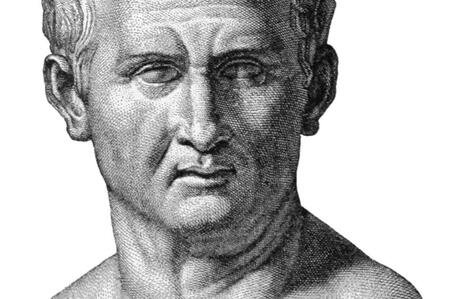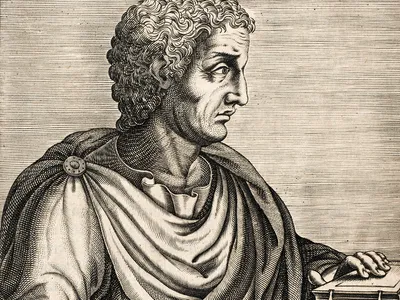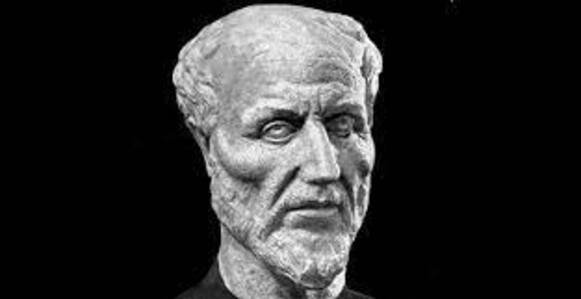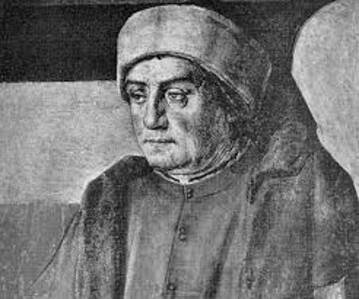Ancient Rome was the birthplace of numerous great and famous Roman philosophers, whose works have influenced the evolution and progress of Western philosophy over centuries.
Their significant contributions of Roman philosophers span various fields such as ethics, politics, metaphysics, epistemology, etc. As we look back at their legacy, it is crucial to recognize their role in shaping our present-day perspectives and thoughts.
In this article, we will explore the top 8 most famous Roman philosophers whose teachings, ideas, and concepts resonate even today.
Cicero

Marcus Tullius Cicero was a committed citizen of the Roman Republic who ascended to the rank of consul in 63 BCE. The Republic had existed for more than five centuries at this time and Cicero was among its final guardians.
He wrote De Officiis or On Duties during a period of intense turmoil concerning the future of the Republic. Despite being urged, he refused to join forces with Julius Caesar, Crassus, and Pompey and appealed to Caesar to preserve it instead.
In his influential book, Cicero directly criticized individuals such as Caesar and Mark Antony for subverting the fundamental principles of the Republic, above all the sense of civic obligation upon which it was established.
Cicero believed that as citizens, their focus should be on the benefit of the Republic rather than their own interests. He emphasized the importance of promoting human connection and unity, especially in relation to others.
Cicero also suggested that determining what is honorable and noble should be based on utility and profitability, with dishonesty never leading to the common good. Despite his ideas, Cicero was captured and killed a year after writing The Officiis by Octavian’s troops.
Seneca the Younger

Lucius Annaeus Seneca, also known as Seneca the Younger was born around 4 BCE. He was both a Roman politician and philosopher. Despite frequent illnesses throughout his life, he was the target of multiple assassination attempts by the Emperors or Senate on three separate occasions.
Although it required three attempts, Seneca ultimately took his own life, with the ironic twist being that it was a prolonged illness that kept him alive until then.
Throughout his life, Seneca championed the Stoicism school of philosophy, which gained popularity in Rome despite originating in Greece. Unlike many philosophers, Seneca did not always practice what he preached. Despite the Stoics’ belief that poverty was not evil or something to avoid, Seneca was one of the richest men in the world.
Although he praised living a private life, Seneca was very much involved in the public sphere. Additionally, though he claimed that living virtuously was crucial, he often found himself at the center of scandals in Rome.
Despite this, Seneca made compelling arguments for Stoicism, with a primary focus on ethics rather than logic, metaphysics, and epistemology. His arguments read more like advice for life rather than claims about reality. He convincingly warned against the dangers of anger and other emotions, arguing that simplicity and virtue were the keys to a good life.
While his arguments may not have always been valid, his persuasive style was powerful and convincing, earning him the title of the emperor’s teacher and defender of Roman Stoicism.
Hypatia

Hypatia, a philosopher of Neoplatonism and a pioneer in mathematics was born to Theon, a gifted philosopher and mathematician. She lived in the city of Alexandria in Egypt and is the first female philosopher whose life was well recorded.
She taught the philosophies of Neo-Platonism as expounded by Plotinus and Iamblichus, the former being the father of Neo-Platonist ideology and the latter leading the movement in Syria.
In a time when the West was overwhelmed by paganism practices, Hypatia introduced the concept of knowledge and science.
Her philosophy was more inclined towards scholarship and science and comparatively less mystical and pagan than that of Neoplatonism in other schools. Unfortunately, she died violently during a conflict between Christians and Pagans.
Pliny The Elder

Pliny originated from a prominent family in Como, Italy, but eventually relocated to Rome to continue his education. Although fragments of his past conversations remain, his sole definitive published work is Natural History, which covers various aspects of the natural world.
The book is divided into 37 parts, each section discussing Pliny’s observations on diverse topics ranging from cosmology and astronomy (Book II) to humans (Book VII), reptiles and mammals (Book VIII), fishes and other aquatic animals (Book IX), birds (Book X), and insects (Book XI).
While some portions of the book contain excerpts from Aristotle’s logical teachings, many sections comprise Pliny’s original research and analysis.
As a result, he compiled an extensive book that was widely available in both Rome and Italy, which brought together his research and studies on various branches of botany.
Plotinus

Plotinus is known as a prominent philosopher and the founder of Neo-Platonism from ancient times. There are only a few resources available about his biography, which were published by his disciple. These sources include books like The Life of Plotinus and Enneads.
However, none of these resources provide much information about his personal life. Although the extant sources do mention a six-year-long acquaintance between Plotinus and Porphyry, most of his history remains unknown to us.
Plotinus, in addition to being a dedicated educator, sought solace in writing during his later years. In terms of his teachings, he adhered to the conventional educational practices that were prevalent during that time.
He often expressed his personal opinions regarding the beliefs of earlier philosophers, as well as holding discussions on diverse topics and pursuing them until reaching a firm conclusion.
Like many thinkers of the late ancient era, he placed faith in divination and astrology. His ultimate message advocated for a spiritual pursuit toward achieving divinity.
Anicius Manlius Severinus Boethius

Anicius Manlius Severinus Boethius, a Roman scholar, and statesman, was also a Christian philosopher whose notable work on Neo-Platonism, De Consolatione Philosophiae (Consolation of Philosophy), propelled him to great heights as an author.
Within his book, he expresses the belief that true happiness is achieved through the sacred union of wisdom and Divine Love. Boethius was committed to translating Aristotle’s logic from Greek into Latin, as well as creating commentaries, notes, and glosses for Plato’s complete works.
However, Boethius was convicted of openly defending Senator Albinus, practicing magic, and committing sacrilege. During his time in prison, he wrote his most personal and distinguished work, Consolation of Philosophy, in which he presented Platonic philosophical arguments with a hint of literary art. He was executed in 524 CE, and his only hope was for a virtuous reward on the other side of death.
Porphyry
Porphyry of Tyre was a disciple of Plotinus, the Neoplatonic philosopher. Of all his other contributions, the most significant is the publication of the manuscript of his teacher, Plotinus, called Enneads posthumously.
Born in Lebanon (older Phoenicia) around 233-234 CE, his name was Malchus. He later visited Rome and became acquainted with his teacher. To talk about his original works, he has penned on cosmopolitan topics. Isagoge or Introduction was translated into Latin and Arabic, which was a staple book among teachers during the Middle Ages.
The followers of Christianity were angered and a controversy was sparked by Porphyry’s books, “Philosophy from Oracles” and “Against the Christians.” In addition to these works, Porphyry’s famous book “Introduction to Categories” briefly explains Aristotle’s ideas.
He criticized Christianity and supported Paganism, arguing that Christianity was given an unnecessarily high position. Porphyry disliked the theme of Christianity and the idea of an impersonal God. According to him, people could only unite with God by combining wisdom and reason.
He also promoted vegetarianism and wrote about the impacts of consuming animal meat. Aside from these works, he also authored books on Pythagoras, specifically “Life of Pythagoras,” and one on Plotinus. Porphyry worked to preserve the lives, struggles, and achievements of various philosophers and mathematicians who otherwise may have been lost to history.
Marcus Aurelius

Marcus Aurelius Antoninus was both a Roman emperor and a philosopher who wrote The Meditations, which is a significant work of Stoic philosophy. He was born into a wealthy and politically influential family and later ascended to the throne, proving himself to be a competent and respected leader.
He is most remembered for his skillful handling of crises and warfare. His book, Meditations, presents his personal reflections, musings, and anecdotes during his campaigns and battles against the barbarians.
The book is a comprehensive illustration of Stoic philosophy, emphasizing the importance of controlling our controllable matters and relinquishing what we can’t control. In his narration, Marcus Aurelius portrays himself as a responsible emperor who is neither moved by temporary nor lasting fame.
It provides insights into what it takes to be a Roman emperor and captures the essence of the zeitgeist of that era. He originally wrote in Greek, which testifies to the blending of Greco-Roman cultures.
His book remains relevant across ages and periods, although it is most likely to entice people in modern times. It explains Stoicism, a philosophy that emphasizes controlling only what’s within our control and letting go of anything reliant on external factors.
The author portrays a virtuous emperor, indifferent to passing or eternal glory, with vivid narration. He is acclaimed for his uncomplicated take on Stoicism, and his book is now widespread, particularly among those who find solace during modern-day complexities.
